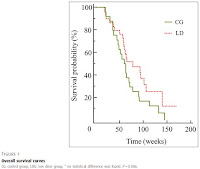Dear Friends
I am here looking for advice for my wife.. My wife at age 34, is diagnosed with GBM4 on August 25, 2018. I have no clue where to start with our story but thought adding some details may help to comment and guide us better.
When my wife was diagnosed, the doctor at Vanderbilt university hospital in Nashville said, they could not operate the tumor because it is spread a lot and had multiple lesions and they could see some rupture and blood. By the time, they did biopsy.. she already had her left side paralyzed. After staying for 15 days in ICU.. We were discharged from hospital with tapering dose on DEX and within 48 hours we were back in Emergency room with another seizure and they have to put her on ventilator .. after another 15 days in ICU she was little stable and currently we are back home and living everyday as a new day.
Meanwhile she got 10 days of radiation (whole brain), The doctors choose 10 days compare to standard 6 weeks as they were afraid about swelling from radiation. On 5th day of radiation.. they also started Chemotherapy with Temodar. Now she is on second cycle of Temodar with higher dose.
After Radiation and Chemo .. the things looked little better .. she has some movement in left side .. I would say she will score 1 or 2 out of 5 in neuro-exam. She is still confused (high dose of DEX) but at least speaking and is thoughtful.
Currently she is on -
NO
- Prescribed
|
| Dexamethasone |
4 mg |
4 times |
| Keppra |
1500 mg |
2 times |
| Multi Vitamin |
|
1 time |
| Vitamin B1 |
|
1 time |
| Temodar |
200 mg |
5 days |
| Zofran |
|
As needed |
Homeopathic
|
| Ruta-G |
2 drops |
2 times |
| Cal-Phos |
3X |
2 times |
Supplement
|
| Curcumin |
~3 gm |
daily |
| Haridra |
~1 gm |
daily |
| Boswellia |
~ 1.5 gm |
daily |
| Vitamin E oil |
~10 drops |
daily |
| Holy Basil |
~ 10 leaves |
daily |
| Melatonin |
20 mg |
1 time |
I would appreciate if you can suggest some repurposed medication which can be added to this list.
Her lab reports are as follow
Integrated Diagnosis:
BRAIN, RIGHT FRONTAL LOBE, BIOPSY:
-- GLIOBLASTOMA, IDH WILD TYPE AND MGMT METHYLATED.
Histological Classification: Glioblastoma
WHO Grade: IV
Molecular Information: IDH wild type, MGMT methylated, 10q deleted, 17p non-deleted
Positive for MGMT promoter methylation.
LOH 10q: Detected (PCR)
LOH 17p: Not detected (PCR)
IDH1: Mutations not detected (PCR)
IDH2: Mutations not detected (PCR)
BRAF V600E: Mutation not detected (PCR)
MGMT: Gene Methylation DETECTED (Pyroseq )
LOCUS RATIO LOH RESULTS
D10S215 0.31 Detected
D10S541 N/A Not Informative
D10S209 N/A Not Informative
D10S587 0.12 Detected
D17S520 0.95 Not Detected
TP53 0.72 Not Detected
IDH1 (c.315C>T) G105G; rs11554137 Polymorphism Not Detected
IDH1 (c.394C>G) R132G (CGT>GGT) Not Detected
IDH1 (c.394C>A) R132S (CGT>AGT) Not Detected
IDH1 (c.394C>T) R132C (CGT>TGT) Not Detected
IDH1 (c.395G>A) R132H (CGT>CAT) Not Detected
IDH1 (c.395G>T) R132L (CGT>CTT) Not Detected
IDH1 (c.395G>C) R132P (CGT>CCT) Not Detected
IDH2 (c.418C>G) R140G (CGG>GGG) Not Detected
IDH2 (c.418C>T) R140W (CGG>TGG) Not Detected
IDH2 (c.419G>A) R140Q (CGG>CAG) Not Detected
IDH2 (c.419G>T) R140L (CGG>CTG) Not Detected
IDH2 (c.419G>C) R140P (CGG>CCG) Not Detected
IDH2 (c.514A>G) R172G (AGG>GGG) Not Detected
IDH2 (c.514A>T) R172W (AGG>TGG) Not Detected
IDH2 (c.515G>A) R172K (AGG>AAG) Not Detected
IDH2 (c.515G>T) R172M (AGG>ATG) Not Detected
IDH2 (c.515G>C) R172T (AGG>ACG) Not Detected
IDH2 (c.516G>T) R172S (AGG>AGT) Not Detected
IDH2 (c.516G>C) R172S (AGG>AGC) Not Detected
BRAF (c.1799T>A) V600E (GTG>GAG) Not Detected


